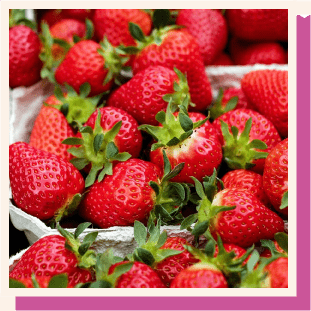Herbs and spices are the true cornerstone of any recipe. They complement the creaminess of coconut milk in curries, polish a perfect pasta, enhance the deep earthiness of eggplant, parsnips and mushrooms, and they intensify the flavors in even the simplest dish. But did you know that there is a way to get even more out of your herbs and spices?
Nearly every major grocery store, and even some local markets, have an organic section. The organic boom is here and has been growing rapidly since 2011. In the U.S., this growth is driven by the oh-so-beloved Millennial generation, and it’s spreading. Why? Because consumers are becoming more concerned with the foods that they eat and the impact that these foods have on the environment and the farmers who grow them. So here are 5 reasons why you should choose organic on your next visit to the market.
1. Non-organic Herbs and Spices Often Contain Fillers
In addition to artificial colors and flavors conventional spices may also contain non-caking ingredients, MSG, preservatives, added sugar, salt, and even flour. You might be surprised to learn that there is flour in your favorite spice blend, especially if you suffer from Celiac disease, but this is quite a common practice. It’s cheaper to sell you a bottle of 30% – 50% filler than a full bottle of garlic powder, dried onion, and pepper, or a combination of the three. And because, in the past, consumers weren’t concerned with the actual ingredients of their favorite spice mix, companies got away with it.
2. You’ll Consume Less Pesticides and Synthetic Materials
In order to be labeled organic, foods are grown within strict guidelines regarding the use of chemicals, fertilizers, and artificial ingredients. One major concern with conventionally grown foods is that they are often sterilized prior to hitting the shelves and making their way to your plate. Sterilization happens in a few ways, but most commonly crops are fumigated using the chemical Ethylene Oxide, deemed hazardous by the World Health Organization in 2003. This method leaves a coating on the delicate crops which you will inevitably eat later.
3. They Taste Better
Because organic crops are grown with fewer harmful chemicals, the plant’s phytonutrients can properly develop and, along with the healthier soil, provide a more fertile resource for the development of flavor in the herbs and spices. The absence of certain chemicals also provides the opportunity for the terroir (specific characteristics of a growing region) to shine through in the flavor and taste of the herbs. Parsley grown in California will taste deliciously different from parsley grown in New Jersey, much like a Chardonnay from Alsace will have a unique flavor profile as compared to one from the Rhone region.
4. It’s Better for the Environment
The UN Intergovernmental Panel on Climate Change (IPCC) recently authored a report stating that we have about 12 years to course correct our global issues of climate change before things get much worse. We’ve already experienced some of the worst hurricanes in history along with record breaking temperatures, excruciatingly long periods of drought, and on and on. One of the biggest contributors to global warming is agriculture, with animal agriculture providing the toughest blow. Still, organic farming can significantly reduce the emissions of several types of environmental pollutants like methane and C02. Organic farms generally till soil which locks climate change inducing carbon into the earth, keeping it out of our environment. Additionally, natural pest control and composting methods mean a cleaner water supply. Believe it or not, the run off from farms contaminates our drinking water. The use of less harmful, non-synthetic growing solutions in organic farming reduces our risk of environmental damage.
5. Farm Laborers Will Thank You
Exposure to chemicals, especially toxic ones, several hours a day, multiple days a week is a definite health risk for the farmers who grow our food. While the consumption of trace amounts of chemicals used in conventional farming has been deemed “safe” by the USDA, the natural pest control and composting methods of organic farming significantly lowers the health risk to farm workers. Additionally, organic farming is more profitable (fewer chemicals to purchase and a higher shelf price), than conventional methods. These funds are often used to provide employment opportunities to rural communities as organic farming is a more labor intensive process.
Organic farming is the way of the future with a focus on cultivation practices that are better for the planet and healthier for our bodies. As our global climate shifts and consumer health becomes more dependent on the quality of our farming methods, we’ll find that organic practices will be necessary for a healthy environment and a healthy global population, effectively shifting organic farming to the new normal for our society. And what a wonderfully delicious notion that healthier and more flavorful foods will become the standard on your dinner plate.






